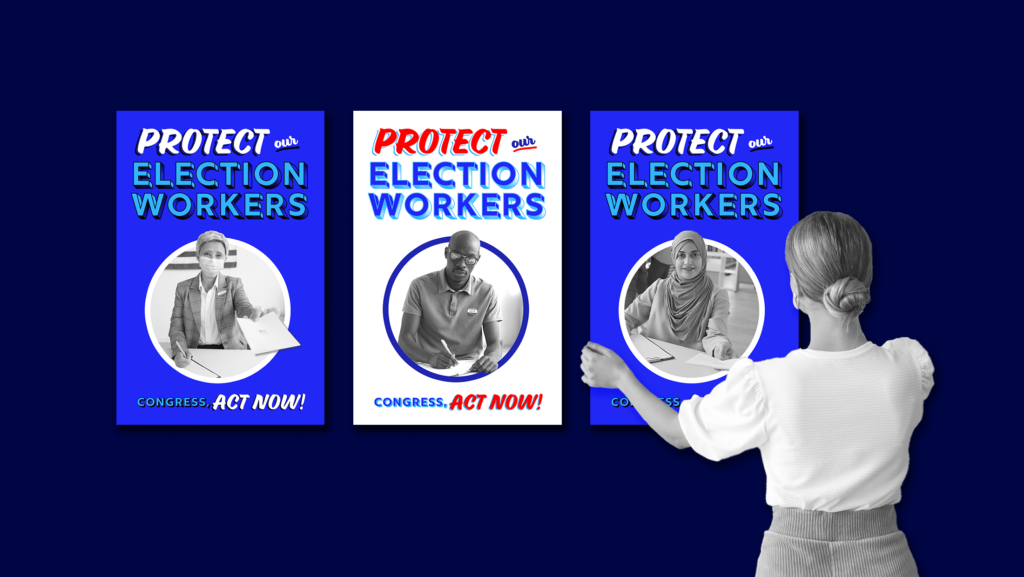We Must Protect Election Workers

Defending democracy means defending those who make democracy work. Every Election Day, tens of thousands of local election workers help ensure that we hold the free and fair elections that undergird the peaceful transfer of power. If the right to vote is the most “precious in a free country,” then local election workers are the guardians and caretakers of that right.
Yet, since November, we have witnessed an alarming increase in violent threats and harassment aimed at our frontline election works. They have ranged from in-person harassment to threats cloaked in the anonymity of social media and the internet. It has led many of these dedicated public servants and civic-minded individuals to resign from their positions or simply retire from helping to administer our elections.
We must be particularly focused on the impact this is having on local election officials and poll workers — paid and unpaid. While elected and statewide officials have put themselves into the public arena and should expect the praise and criticism that results, local officials and workers have not. A social media post accusing the secretary of state of “stealing the election” is not the same as one aimed at a local precinct volunteer or county election worker. We do not have a shortage of people willing to run for secretary of state, but we are likely to face an acute shortage of local election workers.
In fact, we already have too few people willing to prepare for Election Day, work the polls and count the ballots afterward. Every time an election worker is threatened or harassed for administering an election, it is an attack on our democracy. It is time we treat it as such.
First, Congress must make it a federal crime to threaten or harass local election officials — including volunteer election workers — or their families. Congress already provides similar protections for many federal government officials and law enforcement and should extend those to every election worker in the country. The U.S. Department of Justice should prioritize criminal prosecution of threats against election officials and workers with a particular focus on Election Day volunteers. By doing this we will send the message to those working to make our elections successful that we value their work and their safety.
Second, Congress should provide these officials with a private right of action against anyone who threatens or harasses them, including an award of attorneys’ fees if they prevail. After 2020, one of the most effective tools to dissuade the dissemination of disinformation about individuals and companies involved in the election was private litigation. That is a model we should build upon.
Third, Congress should clarify that all identifying information about local election officials and workers is exempt from the federal Freedom of Information Act, without exception. Similarly, it should preempt state disclosure laws that make such information available. States should enact these laws at the state level as well. While disclosure and transparency in government are important, any value gained by publicizing this information is outweighed by our collective interest in the safety and security of our election workers.
Finally, the media must revise its policies regarding coverage of local election workers to ensure their safety. The media should agree to avoid naming election workers or providing identifying information about them or their families. They should not publish photographs or video images depicting election officials without their express consent. And, social media companies need to do their part as well. To start, they should identify harassment of election workers as a category of violation of their terms of use with an easy way to identify and take down offending pictures, videos and information quickly. They also need to clamp down on the disinformation about election administration and results that often feeds the abuse of election workers to begin with.
While the For the People Act hangs in the balance, one step forward would be to include these provisions in the landmark legislation. However, the crisis facing our frontline election workers cannot wait, and defending them should be bipartisan and noncontroversial.
Without election workers, we cannot have free and fair elections, and without elections, we will no longer have a democracy. We must act now to protect those who safeguard our right to vote.